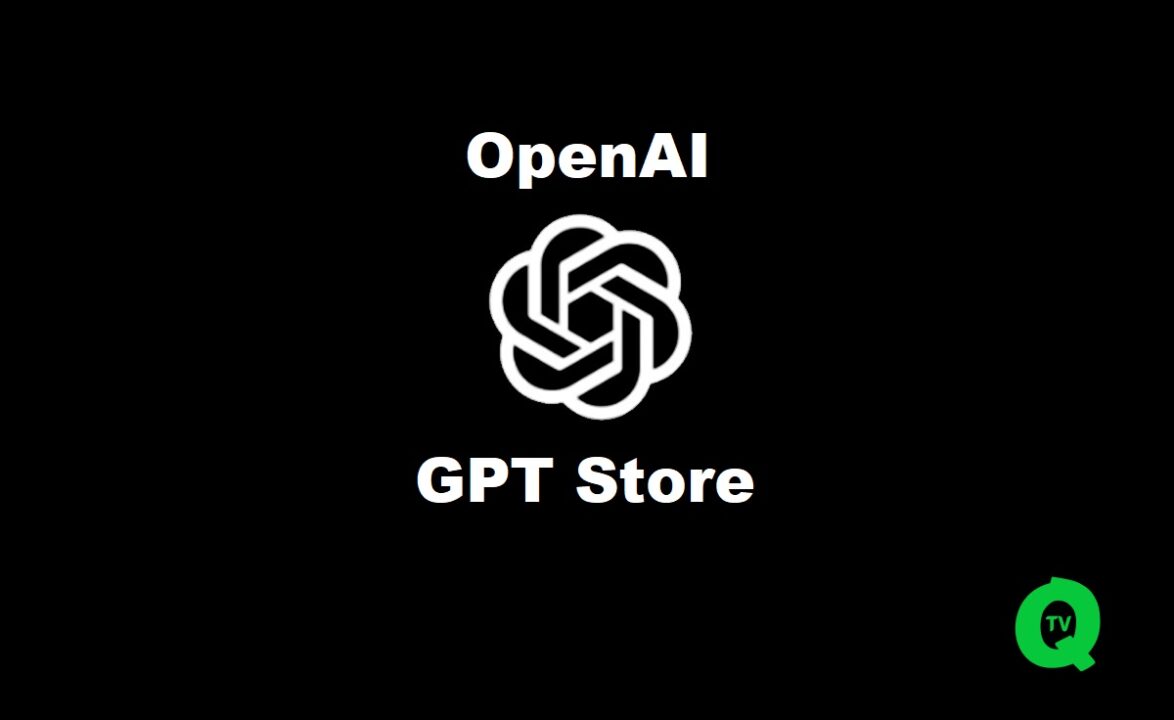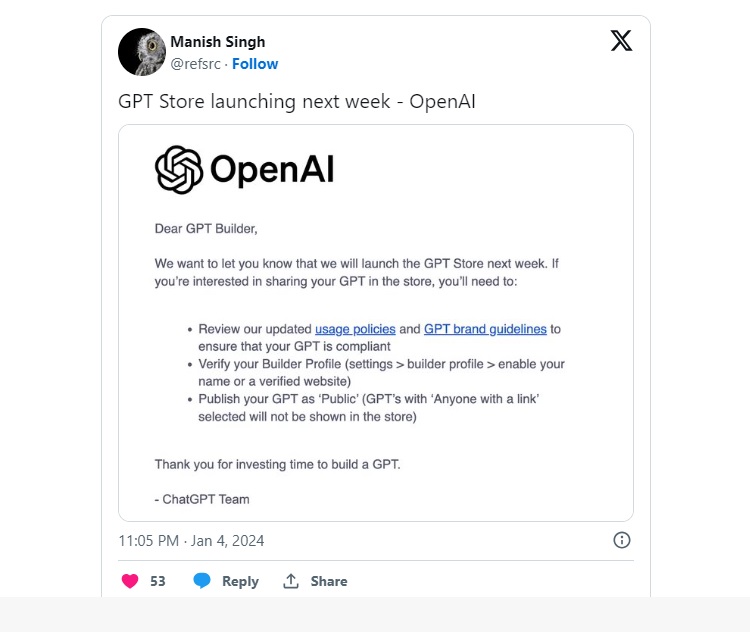In an eagerly anticipated move, OpenAI is gearing up to unveil its GPT Store, a groundbreaking platform allowing developers to showcase and distribute custom applications based on renowned text-generating AI models, such as GPT-4. According to information disclosed in an email obtained by Quoratv, the official launch is slated for the upcoming week.
Developers keen on featuring their GPTs in the store are required to adhere to OpenAI’s recently updated usage policies and GPT brand guidelines. This compliance check ensures that the listed GPTs meet the company’s standards. Developers must also undergo a verification process for their user profiles, and their GPTs should be designated as “public” to be eligible for inclusion in the GPT Store.

While the GPT Store was initially announced during OpenAI’s inaugural developer conference, DevDay, last year, its launch was delayed in December, likely influenced by the organizational changes following the leadership shakeup in November. The return of CEO Sam Altman, after a brief departure, and the establishment of a new board during this period contributed to the postponement.

Notably, GPTs empower developers with the ability to create applications without requiring advanced coding skills. The complexity of a GPT can vary, ranging from a straightforward chatbot to more intricate applications. For instance, developers can train a GPT on a collection of recipes, enabling it to answer queries about specific dishes. Alternatively, a GPT can analyze a company’s proprietary codebases, facilitating style checks or code generation in adherence to best practices.
OpenAI’s GPT Builder simplifies the process for developers by allowing them to articulate their desired capabilities in plain language. The tool then endeavors to create an AI-powered chatbot accordingly. Although developers have been able to craft and share GPTs via the ChatGPT website, the public listing feature has been absent until the imminent launch of the GPT Store.
The specifics of a revenue-sharing scheme for developers within the GPT Store remain unclear. Despite previous statements by CEO Sam Altman and CTO Mira Murati regarding the absence of a firm plan for GPT monetization, the email announcing the GPT Store launch did not provide any insights into potential payment structures.
OpenAI has transitioned from being solely an AI model provider to a comprehensive platform, as evident from its March launch of plug-ins for ChatGPT. This strategic move opened the door for third-party involvement in OpenAI’s model ecosystem, marking a significant shift in the company’s trajectory.
The democratization of generative AI app creation through GPTs raises questions about its potential impact on consultancies specializing in building similar applications for clients. The GPT Store’s imminent launch marks a pivotal moment, and the industry awaits further details that OpenAI promises to reveal next week. The unfolding dynamics may reshape the landscape of AI development and application creation, with potential implications for various stakeholders in the field.




